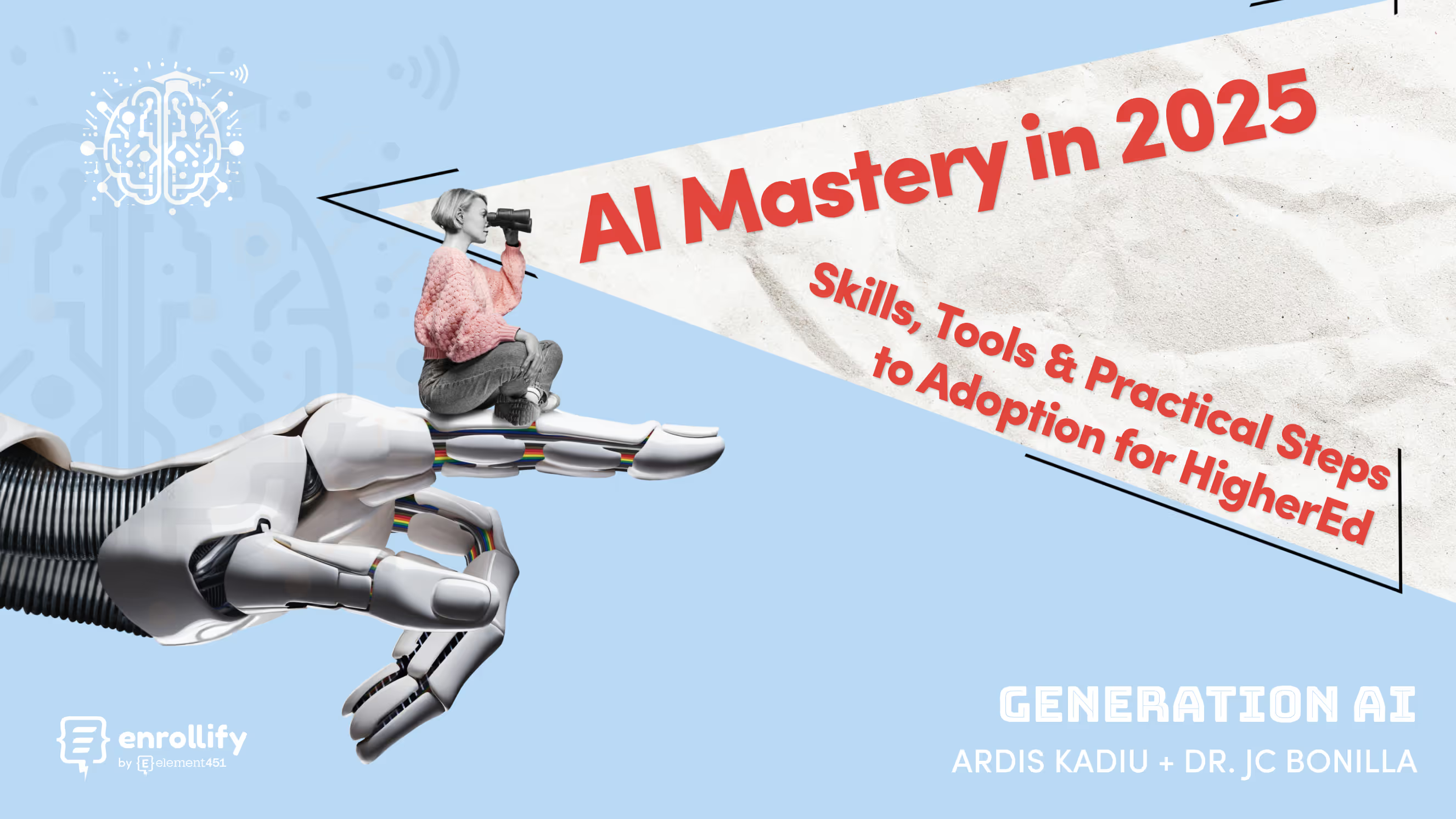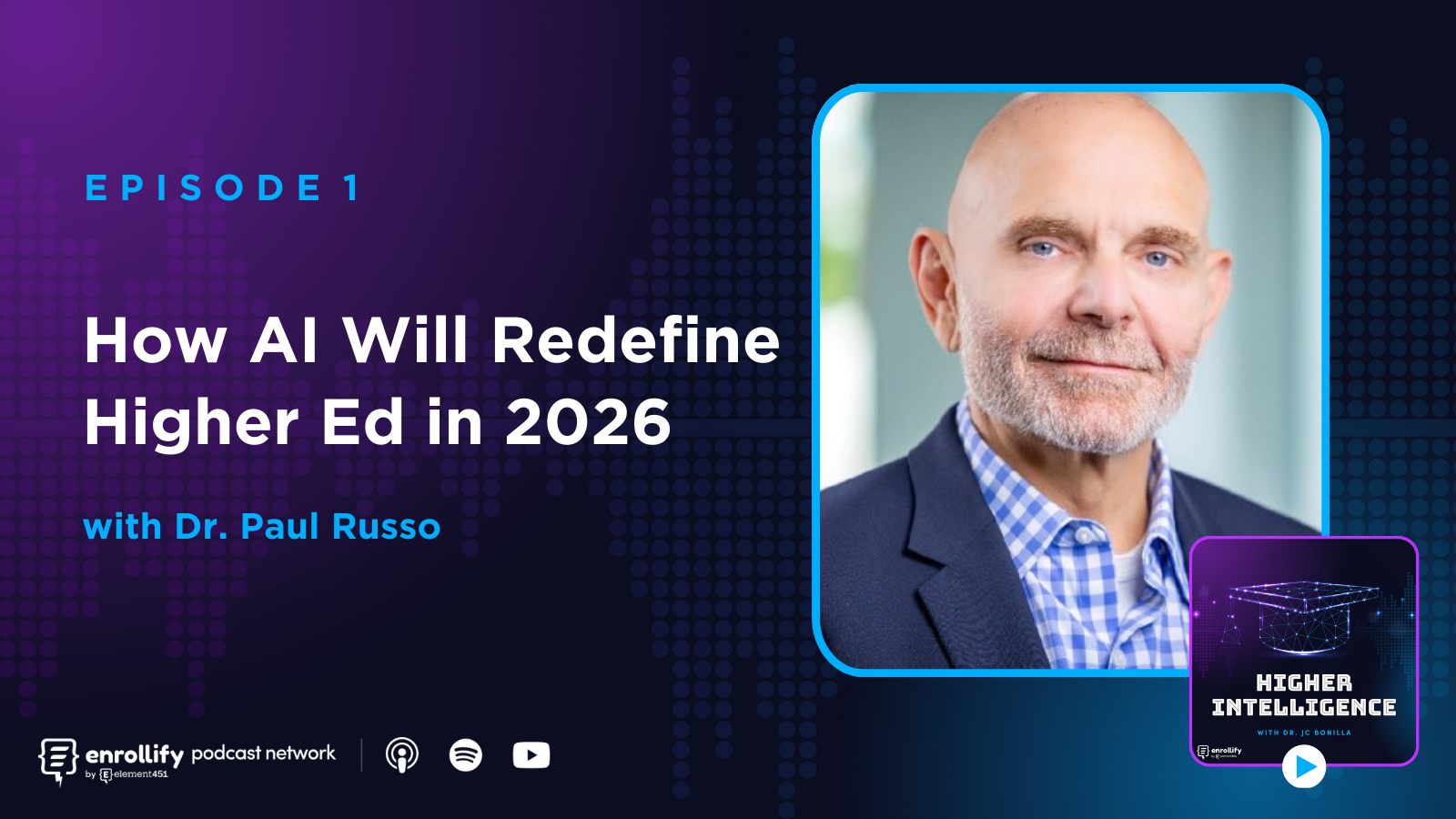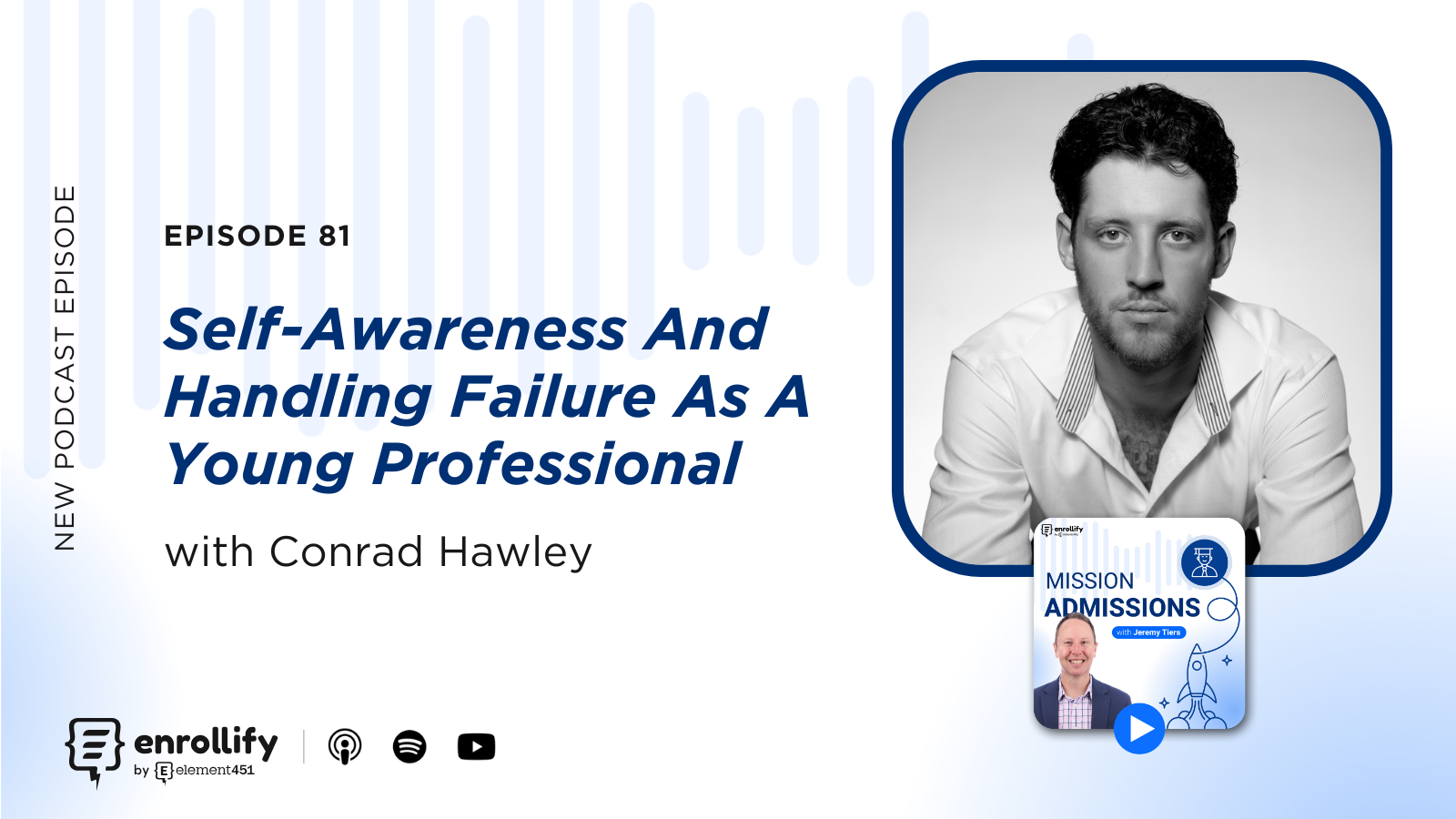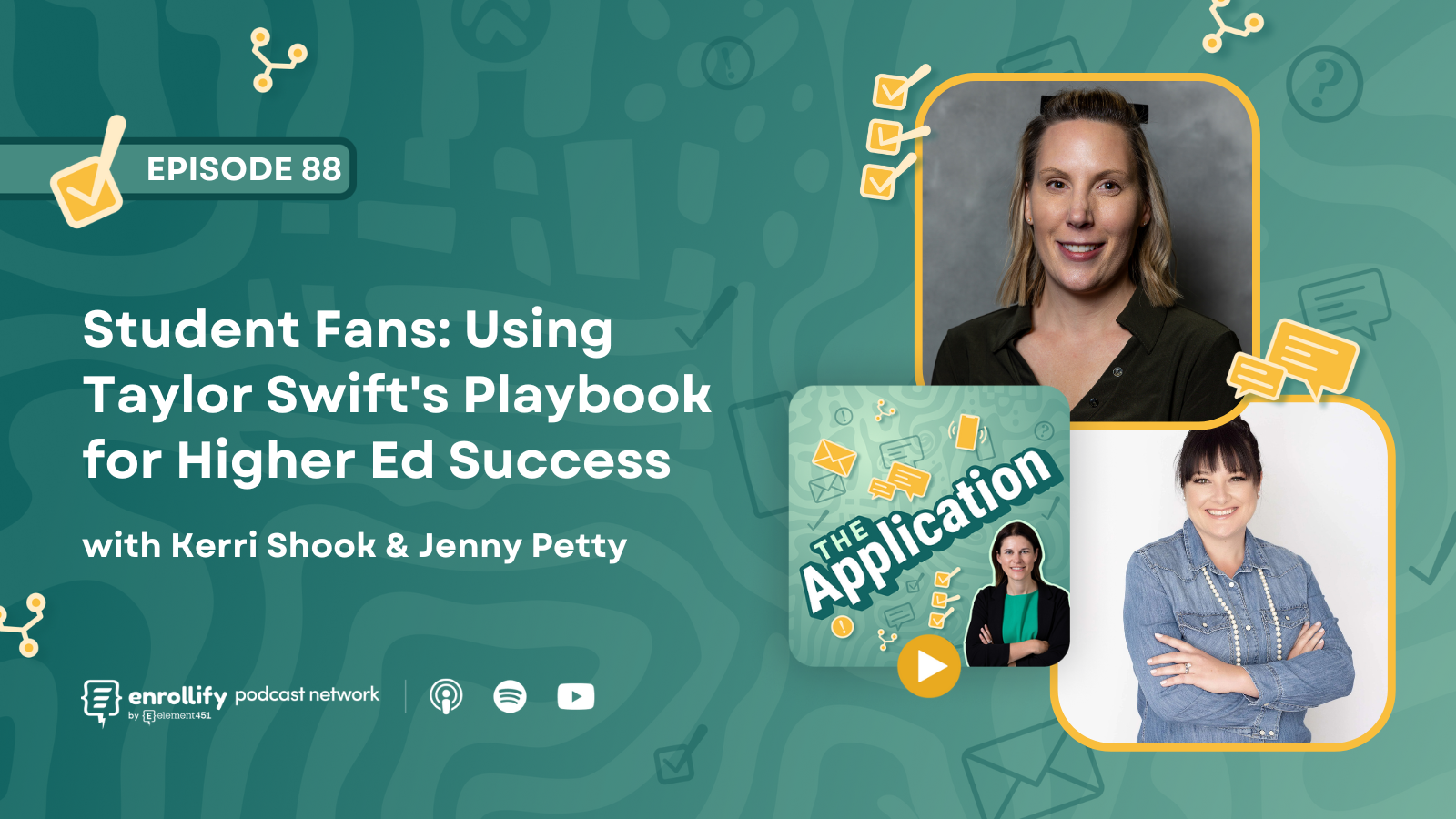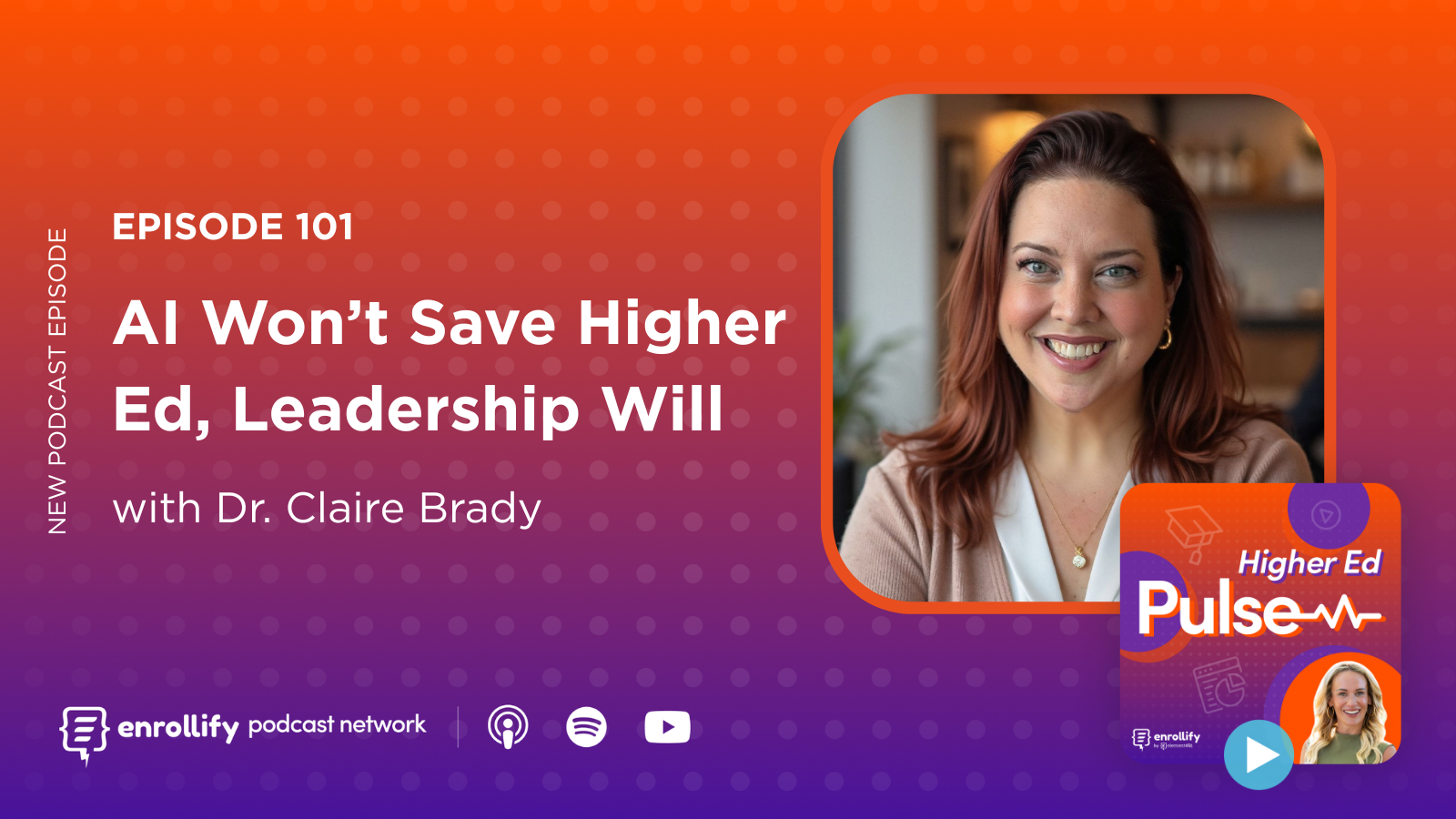About the Episode
About The Episode:
In this forward-looking episode of Generation AI, hosts JC Bonilla and Ardis Kadiu outline the essential skills and strategies needed to master AI in higher education for 2025. They break down the journey from individual AI proficiency to organizational leadership, sharing practical insights on tool selection, workflow automation, and change management. The hosts emphasize the shift from AI literacy to delivering enterprise value, making this episode crucial for higher ed professionals looking to lead AI initiatives or advance their careers through AI expertise.
Key Takeaways
- AI in 2025 will prioritize enterprise value over basic AI literacy. The focus will shift from learning AI tools to embedding them in workflows and processes that drive measurable outcomes.
- Essential AI tools like ChatGPT, Claude, and Gemini are foundational, but mastery requires domain expertise and problem-solving skills.
- Integrated AI workflows will replace standalone tools. Higher ed professionals must move beyond isolated experiments to create production-ready, domain-specific solutions.
- Staying current with AI developments requires intentional effort, dedicating 1-3 hours daily to industry podcasts, blogs, and hands-on learning.
- AI leadership depends on incremental implementation. Small, experimental projects with quick wins can demonstrate value and build buy-in across teams.
- Data integration is a game-changer. Breaking down silos and connecting unstructured data will unlock new insights for higher education institutions.
What skills do higher ed professionals need to master AI in 2025?
The first step to mastering AI is developing individual proficiency with foundational tools like ChatGPT, Claude, and Gemini. But beyond tool familiarity, the real differentiator will be honing domain expertise and the ability to use AI for solving real-world problems. The hosts emphasized the importance of moving beyond prompt engineering to gaining a contextual understanding of your institution’s unique challenges. With the rapid evolution of AI, professionals should commit to daily learning—1-3 hours spent on industry blogs, podcasts, and hands-on experimentation can make a big difference.
To build a strong AI foundation, higher ed leaders must also focus on workflow integration. This means thinking beyond standalone tools and considering how AI can seamlessly fit into existing processes. The hosts stressed that creating production-ready workflows requires domain-specific knowledge and collaboration with teams across the institution.
How can AI workflows be integrated into higher education operations?
AI workflows in higher ed are evolving from isolated experiments to fully integrated systems. For example, JC and Ardis discussed how unstructured data sources like institutional policies, media, and student feedback can be combined with AI to improve decision-making and automation. The key is domain specificity—AI adoption should directly address higher ed’s unique needs, from enrollment marketing to student success strategies.
Practical examples of integration include using AI to streamline application processing, create personalized marketing campaigns, or analyze student success data. The hosts pointed out that successful implementation relies on rethinking workflows from first principles and breaking down data silos to create a unified information ecosystem.
What is the role of leadership in AI transformation?
Driving AI adoption in higher ed starts with leadership. The hosts highlighted the importance of incremental implementation—starting with small, manageable projects that demonstrate immediate value. This approach reduces resistance to change and helps teams see the benefits of AI in action.
Leaders must also focus on change management strategies, such as providing ongoing training and addressing team concerns about AI replacing jobs. JC and Ardis suggested positioning AI as a tool for empowerment rather than replacement, emphasizing how it can free up time for more strategic work. Additionally, leadership should encourage experimentation and pilot programs to find the best-fit solutions for their institutions.
How can institutions stay ahead in AI adoption?
Staying ahead in AI requires a balance of curiosity and action. The hosts recommended carving out time daily to stay informed on the latest AI developments through curated sources like industry podcasts, blogs, and newsletters. But staying informed isn’t enough—practical application is critical. Experimentation with new tools and workflows helps institutions uncover their strengths and challenges in AI adoption.
One key insight shared was the value of partnerships. Building relationships with AI vendors and co-creating solutions can give institutions an edge, especially when piloting new programs. Early adoption and experimentation often lead to first-mover advantages and help shape tools that better align with higher ed’s needs.
Why is data integration essential for AI in higher education?
Data is at the core of AI’s transformative potential, but many institutions struggle with siloed or unstructured data. The hosts outlined how connecting disparate data sources—like admissions data, academic records, and student feedback—can reveal patterns and opportunities that were previously hidden.
Examples included using AI to analyze media content for sentiment, aggregate student feedback into actionable insights, or optimize recruitment marketing campaigns. Successful data integration requires breaking down internal silos and ensuring data is clean and ready for AI tools to process effectively.
Connect With Our Co-Hosts:
Ardis Kadiu
About The Enrollify Podcast Network:
Generation AI is a part of the Enrollify Podcast Network. If you like this podcast, chances are you’ll like other Enrollify shows too! Some of our favorites include The EduData Podcast and Visionary Voices: The College President’s Playbook.
Enrollify is produced by Element451 — the next-generation AI student engagement platform helping institutions create meaningful and personalized interactions with students. Learn more at element451.com.







